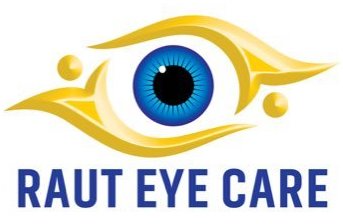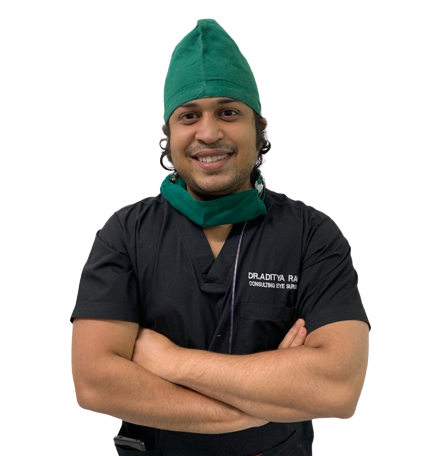Latest articles on eye care
Read the latest articles on eye care, eye diseases, eye tests, eye surgeries, eye care tips and more

Is Lasik Surgery Safe After Pregnancy?
Lasik surgery is one of the potential ways to get rid of glasses and contact lenses. Lasik or Laser-assisted in-situ keratomileusis is essentially a microsurgery, performed to reshape the cornea and correct common vision problems like myopia (nearsightedness), hyperopia (farsightedness), and astigmatism. What this Lasik surgery costs is absolutely worth it if we look at the benefits it offers. Undoubtedly this vision correction approach has improved millions of lives, however, it's vital to know that it brings in exceptions too such as pregnancy. Keep reading to explore why Lasik eye surgery can be an unfavorable incident for pregnancy and whether a LASIK surgery can be safe after pregnancy

Eye heaviness in morning after cataract surgery
Cataract surgery is the most common operation on the human body. It has a high success rate and produces satisfying results for both patients and clinicians. Some patients may experience little discomfort following cataract surgery. It might range from mild to considerable discomfort depending on the patient's sensitivity and the type of cataract removal method employed. Cataract surgery has evolved into a low-risk refractive treatment. In cataract surgery, an incision over the cornea (the front transparent region of the eye) is necessary to gain admission within the eye and access to the lens to be replaced. This incision disrupts several connections between neurons and nerves in that area of the cornea. Such incisions may create discomfort in the patient. Healing in this area can provide unusual sensations. Though superficial healing happens in 5 to 7 days, the ultimate healing reaction occurs on a cellular level for 3 months. This can also have an impact on tear secretion. If a patient already suffers from dry eyes syndrome, surgery may cause further difficulty. Although there is minimal inflammation inside the eyes following cataract surgery or other intra-ocular surgery, this inflammation might cause discomfort. Although the frequency of inflammation is relatively low with modern cataract surgery, pre-existing inflammatory conditions such as anterior uveitis, glaucoma, and dry eyes can cause further irritation and discomfort. Following cataract surgery, a few eye drops must be given. Patients with disorders such as glaucoma, for example, would need to use significantly more eye drops after cataract surgery. Because of the preservatives in the eye drops, this can cause considerable discomfort. In such cases, preservative-free drops are important, and drops should be used according to the doctor's instructions rather than according to personal preference. Patients with particular diseases, such as diabetes, Fuch's dystrophy, recurrent corneal erosion syndrome, and LSCD, may experience severe eye discomfort after cataract surgery due to unusual corneal innervation, weak corneal structure, and altered healing response.

What to do if soap gets in your eyes?
Usually we are careful of soap going in eyes while bathing or washing face,yet some times soap does enter our eyes causing discomfort and pain.You might even fear that you have done some long lasting harm to your eyes.In this article we discuss if having soap in your eyes is a cause of concern and what can be done immediately. Soap in eyes does cause discomfort,redness and pain.This is because of the difference in pH of our eyes and soap.Eyes have pH of around 7 which is neutral.A variety of soaps have pH of 9-10 which is alkaline.Our eyes have low tolerance for alkaline substances.Thus when soap gets into eyes causes burning sensation. Front surface of your eyes is very reactive to stimuli,so any contact with external substances can cause a great deal of pain.If left untreated the presence of soap in eyes could cause damage to the surface of eyes.

Diabetic Retinopathy
It is microvascular changes that occur in one's retina over a period of time during which his/her sugar control is not upto the mark. How do you know if you have diabetic retinopathy(DR), well answer to that question is simple, just have to see a ophthalmologist, a retina specialist to be more specific. What should I expect during my retina consult? In case you are found to have no evidence of DR you will be asked to review at least once a year for routine retina check up. The disease has its staging and the retina specialist is the one who is experienced enough to stage the disease accurately and call for follow-up at intervals according to the stage of your DR as per global guidelines. What if I have blurring of vision in DR? If your vision is blurred due to DR diagnosed by a retina specialist then there could be 3 reasons 1. Due to Diabetic macular edema, which can be treated with a wide range of treatment option like laser, intravitreal injections or simply by instilling drops. Now the duration and frequency of treatment has to be tailored for each individual for which again the retina specialist with his experience plans. However recurrence of this edema do occur vastly because of poor control of diabetes. 2. Due to vitreous hemorrhage, tractional retinal detachments or combined detachments, in this cases retina surgery is what is recommended by retina surgeons. Again the outcome depends on control of diabetes and pre-existing state of your retina. 3. Retina itself has become ischemic with permanent degenerative changes which are irreversible can also lead to vision loss. So as you can understand that the disease is Progressive one either slow or fast depends greatly on your Diabetic control and treatment becomes more and more complicated and expensive with minimal scope of improvement. Hence regular timely follow-ups with your retina specialist is what is recommended.

What is keratoconus ?
Exact causes of keartoconus are unknown but according to research most of the keratoconus cases are hereditary Age: Usually starts after puberty. In some cases keratoconus can start before puberty also. Less common in people older than 40 years of age Systemic disorders : Keratoconus can be associated with certain disorders such as Down syndrome, Ehlers-Danlos syndrome, osteogenesis imperfecta, and retinitis pigmentosa. Inflammation: Inflammation from things like allergies, asthma, or atopic eye disease can break down the tissue of the cornea. Eye rubbing: Rubbing your eyes hard over time can break down the cornea. It can also make keratoconus progress faster if you already have it.

Why do I see wavy lines after cataract surgery?
There are many reasons behind such a usual phenomenon after undergoing a cataract
surgery. These discomforts such as wavy lines, blurry vision, and haziness persist for some
days or even a couple of months after surgery.
The possible reasons are neural adaptations (brain adjusting with the new lens), presence of
Epiretinal membrane, and reduction in contrast sensitivity, which are common in patients
with multifocal intraocular lens (IOL). All these post-cataract surgery symptoms are termed
as dysphotopsia.
However, 3 major factors contributing to the wavy vision are as follows:
1. Cystoid Macular Edema involves swelling of the centre of the retina known as the
macula. This mostly happens after cataract removal, which is a post-operative
inflammation. This causes the blood vessels in the macula to swell and leak fluid,
making straight lines appear wavy
2. Dislocation of the Intraocular lens that you have surgically placed can lead to such
vision distortion
3. Retinal detachment, as just after the cataract surgery the tissue from the surrounding
sides of the retina pulls away from it. The retinal tissue is responsible for processing
the light.

Cataract Surgery in Pune | Cost | Symptoms
Cataract Surgery is a specialised and safe procedure for treating cataracts. Here are some key points to explain the procedure:
Cataract Surgery is a procedure where the defective or cloudy natural lens of your eye is replaced with an artificial lens. A cataract develops due to the ageing process of the natural lens inside the eye or may be related to injury or other systemic illnesses.
The surgery is performed on an outpatient basis, meaning you will not need to stay overnight at the hospital.The procedure is done while you are under local/drops anesthesia, so you will remain awake and comfortable but feel no pain.
During the surgery, the doctor will make a small incision in your eye and remove the natural lens.The artificial lens will then be inserted in place of the natural lens.
You won't experience any pain or discomfort during or after the surgery and the recovery process is usually quick and painless.After the surgery, the doctor may prescribe eye drops or other medications to help with the healing process.
Most people experience improved vision within a day of the surgery.In some cases, you may need to wear sunglasses or dark glasses after surgery to protect your eye's from direct sunlight,dust and dirt for a few days after the procedure.
Cataract Surgery is a specialised and safe procedure for treating cataracts. Here are some key points to explain the procedure:
Cataract Surgery is a procedure where the defective or cloudy natural lens of your eye is replaced with an artificial lens. A cataract develops due to the ageing process of the natural lens inside the eye or may be related to injury or other systemic illnesses.
The surgery is performed on an outpatient basis, meaning you will not need to stay overnight at the hospital.The procedure is done while you are under local/drops anesthesia, so you will remain awake and comfortable but feel no pain. During the surgery, the doctor will make a small incision in your eye and remove the natural lens.The artificial lens will then be inserted in place of the natural lens.
You won't experience any pain or discomfort during or after the surgery and the recovery process is usually quick and painless.After the surgery, the doctor may prescribe eye drops or other medications to help with the healing process. Most people experience improved vision within a day of the surgery.In some cases, you may need to wear sunglasses or dark glasses after surgery to protect your eye's from direct sunlight,dust and dirt for a few days after the procedure.

Cataract Evaluation and Safety Checks
Cataract evaluation is an eye exam designed to diagnose and evaluate the severity of a cataract.During the evaluation, the eye doctor will check your vision and examine the lens of the eye for any signs of opacification or clouding.
The doctor will also measure the eye pressure, look for any signs of inflammation or damage, and assess the retina.Depending on the results of the cataract evaluation, the doctor may recommend surgery or other treatments.
Cataract surgery is a common procedure to remove cataracts and restore vision.After surgery, the doctor may recommend additional tests or medications to help prevent further damage to the eye.
Cataract evaluation is an eye exam designed to diagnose and evaluate the severity of a cataract.During the evaluation, the eye doctor will check your vision and examine the lens of the eye for any signs of opacification or clouding.
The doctor will also measure the eye pressure, look for any signs of inflammation or damage, and assess the retina.Depending on the results of the cataract evaluation, the doctor may recommend surgery or other treatments.
Cataract surgery is a common procedure to remove cataracts and restore vision.After surgery, the doctor may recommend additional tests or medications to help prevent further damage to the eye.

Eye hospital in pune
Founded in 1987, Dr.Rajeev Raut Eye Clinic, is one of Pune's oldest and most reputed eye centers. With over 4 decades of experience treating complex vision disorders, our hospital guarentees a result, no matter what your visual complaint. With a staff of over 8 superspecialist opthalmologist, and nearly 45 support staff including optometriests, nurses our center is well equipped to solve all your eye care concerns under a single roof. FInd us at : 2a, Manisha Terrace, Moledina Road, Pune, Camp Call us At : 0206134441 Check the map for directions :



